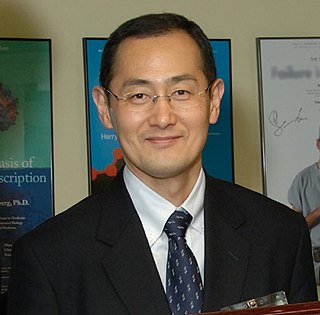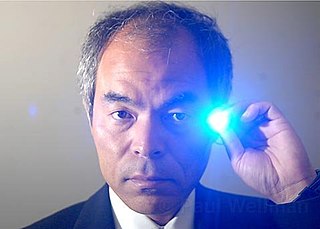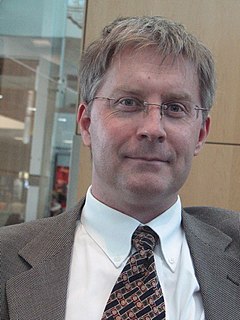A Quote by Shinya Yamanaka
I like the freedom of research. Plus, if I fail in science, I know I can always survive because I have an M.D. This has been my insurance policy.
Related Quotes
I cannot disagree with you that having something like 500 economists is extremely unhealthy. As you say, it is not conducive to independent, objective research. You and I know there has been censorship of the material published. Equally important, the location of the economists in the Federal Reserve has had a significant influence on the kind of research they do, biasing that research toward noncontroversial technical papers on method as opposed to substantive papers on policy and results
This example illustrates the differences in the effects which may be produced by research in pure or applied science. A research on the lines of applied science would doubtless have led to improvement and development of the older methods - the research in pure science has given us an entirely new and much more powerful method. In fact, research in applied science leads to reforms, research in pure science leads to revolutions, and revolutions, whether political or industrial, are exceedingly profitable things if you are on the winning side.
"Endow scientific research and we shall know the truth, when and where it is possible to ascertain it;" but the counterblast is at hand: "To endow research is merely to encourage the research for endowment; the true man of science will not be held back by poverty, and if science is of use to us, it will pay for itself." Such are but a few samples of the conflict of opinion which we find raging around us.
The policy that received more attention particularly in the past decade and a half or so has been the US cocaine policy, the differential treatment of crack versus powder cocaine and question is how my research impacted my view on policy. Clearly that policy is not based on the weight of the scientific evidence. That is when the policy was implemented, the concern about crack cocaine was so great that something had to be done and congress acted in the only way they knew how, they passed policy and that's what a responsible society should do.
Science fiction has its own history, its own legacy of what's been done, what's been superseded, what's so much part of the furniture it's practically part of the fabric now, what's become no more than a joke... and so on. It's just plain foolish, as well as comically arrogant, to ignore all this, to fail to do the most basic research.
President Obama said, oh, we want to make insurance perfect for people, but he added all these regulatory mandates, made it too expensive. Young, healthy people didn't buy it, and the people remaining in the insurance pool were sicker and sicker. That's the adverse selection and the death spiral of Obamacare. And so really we do need to discuss the intricacies of what worked and what didn't work in Obamacare. And I think the better way to do this is to let individuals have the freedom to choose what kind of insurance is best for them. The government doesn't always know best.
Kyoto costs a lot, does nothing to prevent calamity, and pays no compensation in the event of loss. If my insurance broker offered that sort of policy, I would not carry insurance. Instead what my broker offers is a policy that costs a little and pays full compensation in the event of loss. If someone wants to propose that as a policy on global warming, I'm all in favour.
I've never like had a system or a program, I always think that I don't know how to act. I'll adapt to any director because I don't really have a set way that I do things. If a director hires me and says, "I want you to get started right now and do this research, this research, this research and I want you to have every line memorized before you ever show up for the first day," then that's what I'll do.
If I could've picked a birthday it would've been on Halloween. Yeah, it's always been my favorite holiday. Not because it was my birthday, but actually because, I think it was the freedom, you know? When you were a little kid, you got to go out and be an adult for a couple of hours. You got to, like, just go out with your friends and knock on peoples' doors and be nuts and pull pranks and stuff like that. You could be whoever you wanted to be, you know, I guess that was the appeal to it.





































